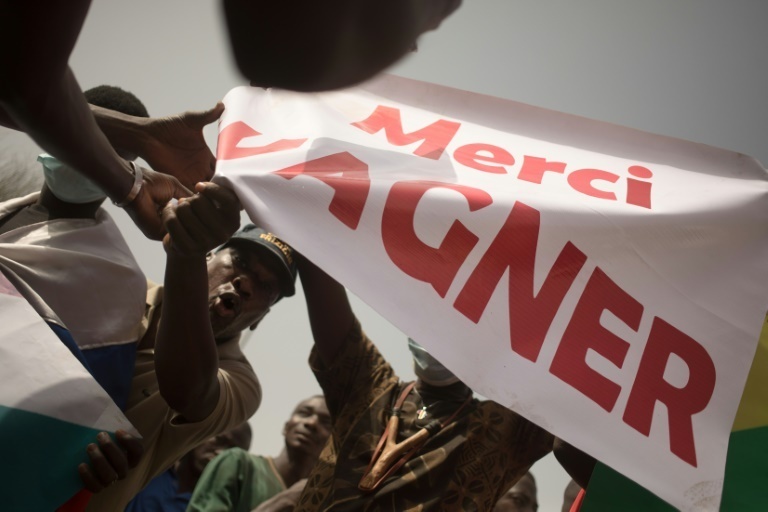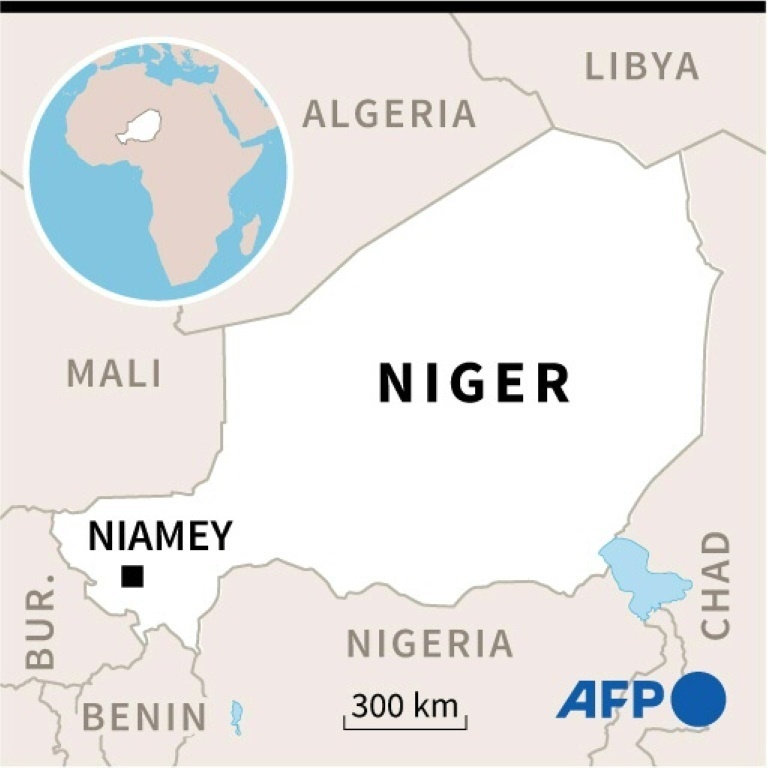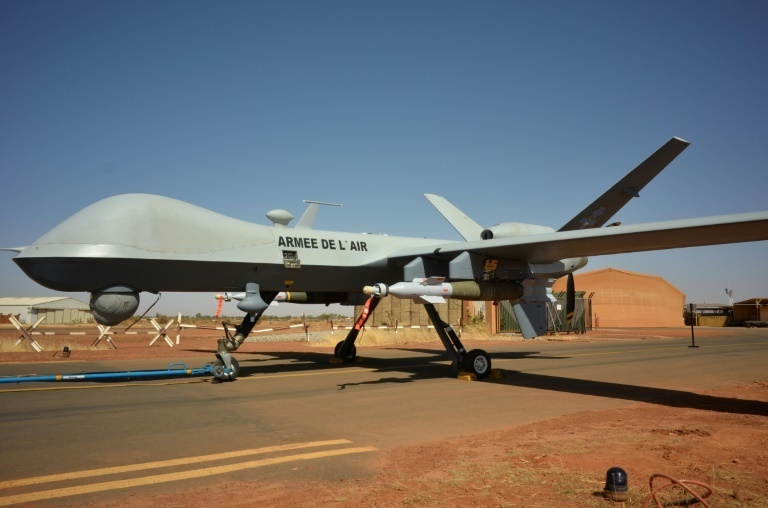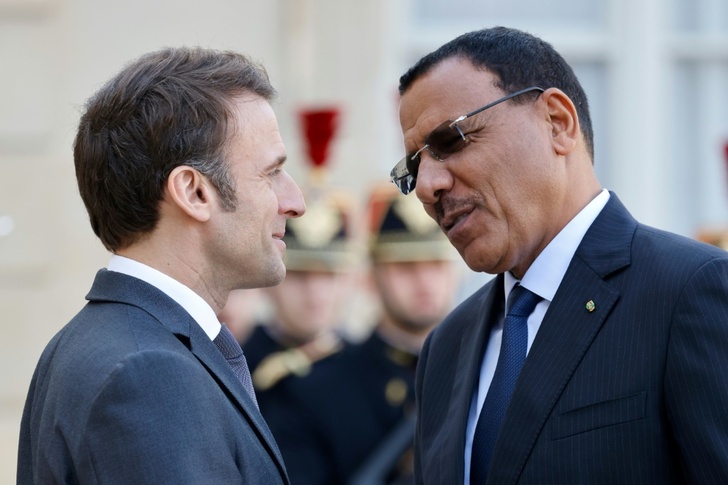A wave of disinformation attacks has hit Niger, a country that has become a linchpin in western strategy in the jihadist-torn Sahel, an AFP investigation has found.
In mid-February, social media in the landlocked arid nation were suddenly overrun with disinformation, from jihadist assaults and a supposed coup to a bogus bombardment.
The authors are unknown, but commentators say their style and timing point to a coordinated effort to undermine opinion in a country that is a crucial ally for France and the US.
Five of the attacks have been scrutinised by AFP.
One video, which has notched up more than a million views on TikTok and Facebook, has a news presenter from the widely-watched French TV channel France 24 announcing there had been "heavy gunfire... around the president's home in Niamey," Niger's capital.
Underneath are postings by contributors that fiercely criticise Nigerien President Mohamed Bazoum and his support of France.

Similar "out-of-contexting" was used to invent other items -- a jihadist attack, a French attack on a Nigerien military convoy and accusations that France's forces were secretly working with jihadists.
- Geopolitical tussle -
The disinformation tsunami coincides with a tussle between several powers, including France and Russia, for influence in former French colonies south of the Sahara.
After facing mounting hostility -- much of it brewed on social media -- France pulled its troops out of Mali and the Central African Republic in 2022 and followed suit in Burkina Faso this year.
Several Facebook pages which shared the fake news about turmoil in Niger have previously disseminated pro-Russian material or taken aim at the French presence in the Sahel.

The supposed evidence was pictures of a mass grave dug up at Gossi, near a French military base that had just been handed back to the Malian army.
The French army denied involvement and put out pictures taken by a drone which it said showed Russian mercenaries burying corpses several days earlier.
France's pullout from Mali came after its military junta forged close ties with the Kremlin, bringing in Russian paramilitaries that Paris said are from the Wagner group.
The CAR also has brought in Russian operatives, and speculation has flared this year that Burkina Faso may follow suit.
- Propagandists at play -
The withdrawal from Mali and Burkina has placed Niger at the heart of France's efforts to stem the jihadist campaign in the Sahel.
The impoverished country is facing two insurgencies -- one in its southwest, which came from neighbouring Mali in 2015, and the other in the southeast, from Nigeria.

Last week, US Secretary of State Antony Blinken travelled to Niamey for the highest-level visit ever by an American official to Niger.
He announced $150 million in humanitarian aid as well as a US agriculture initiative.
Seidik Abba, a Nigerien writer and political analyst in Paris, said the disinformation campaign was "probably designed to destabilise the country and show that Niger, which has remained France's ally in the region, made the wrong decision".
The goal, he said, was to "drive a wedge between public opinion and the government."
But Amadou Bounty Diallo, an analyst based in Niamey, said the reaction to the fake news broadly reflected the public mood.
"If the government wanted to be accountable to public opinion, it would ask for the French army, which has been ineffective (against the jihadists), to withdraw," he said.

The wave of information attacks came as Bazoum was visiting France. On February 17, the day after he arrived in Paris, the Nigerien government announced an inquiry into "authors, co-authors and accomplices" of rumours spreading on social media.
Kalla Moutari, a former minister of defence and MP with the governing Nigerien Party for Democracy and Socialism (PNDS), said the tactics exploited the lack of education in Niger, one of the poorest countries in the world.
But there was also "poverty and the feeling of being abandoned, and many propagandists play on this", he said.
mlf-clt/cl/prh/ri/gw
© Agence France-Presse
Your content is great. However, if any of the content contained herein violates any rights of yours, including those of copyright, please contact us immediately by e-mail at media[@]kissrpr.com.
Source: Story.KISSPR.com

